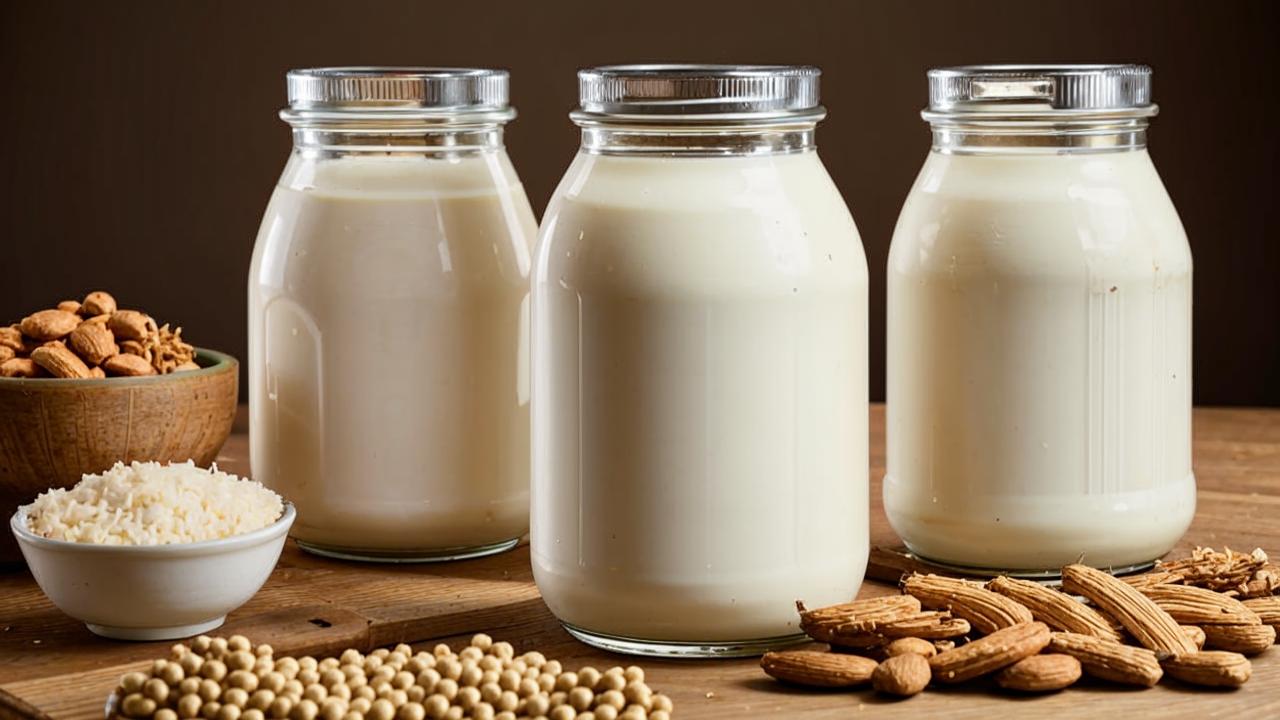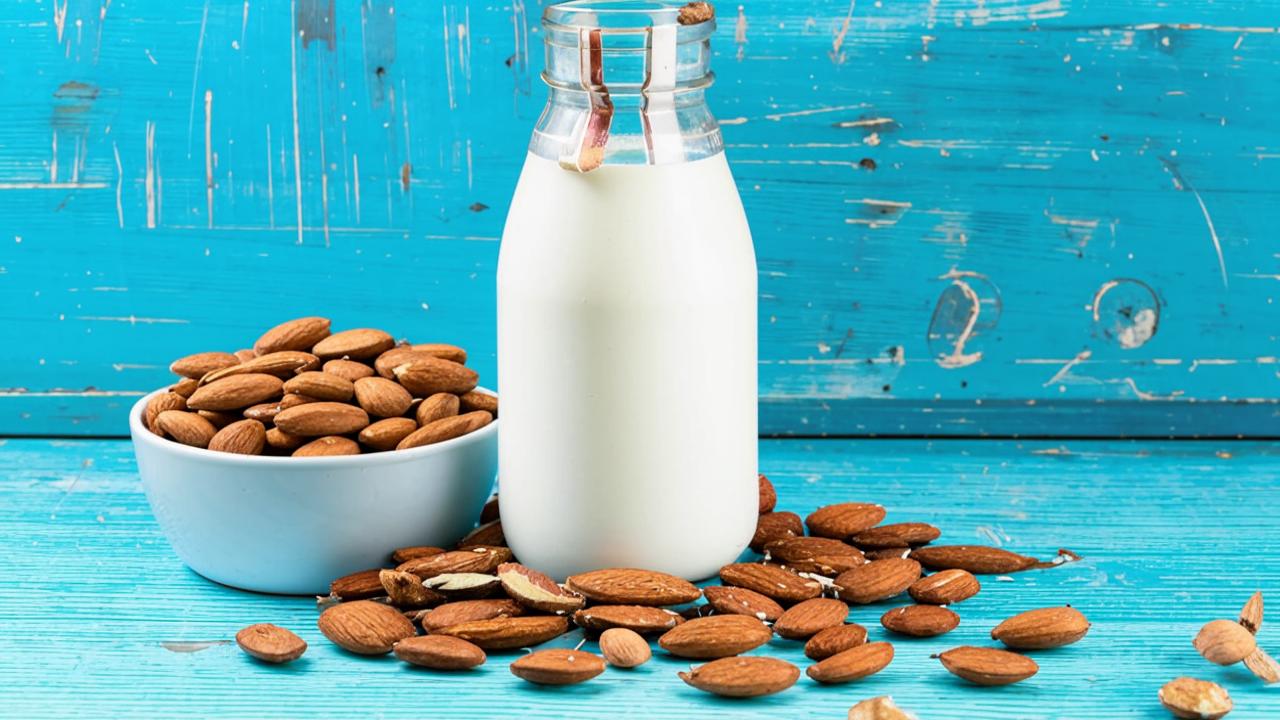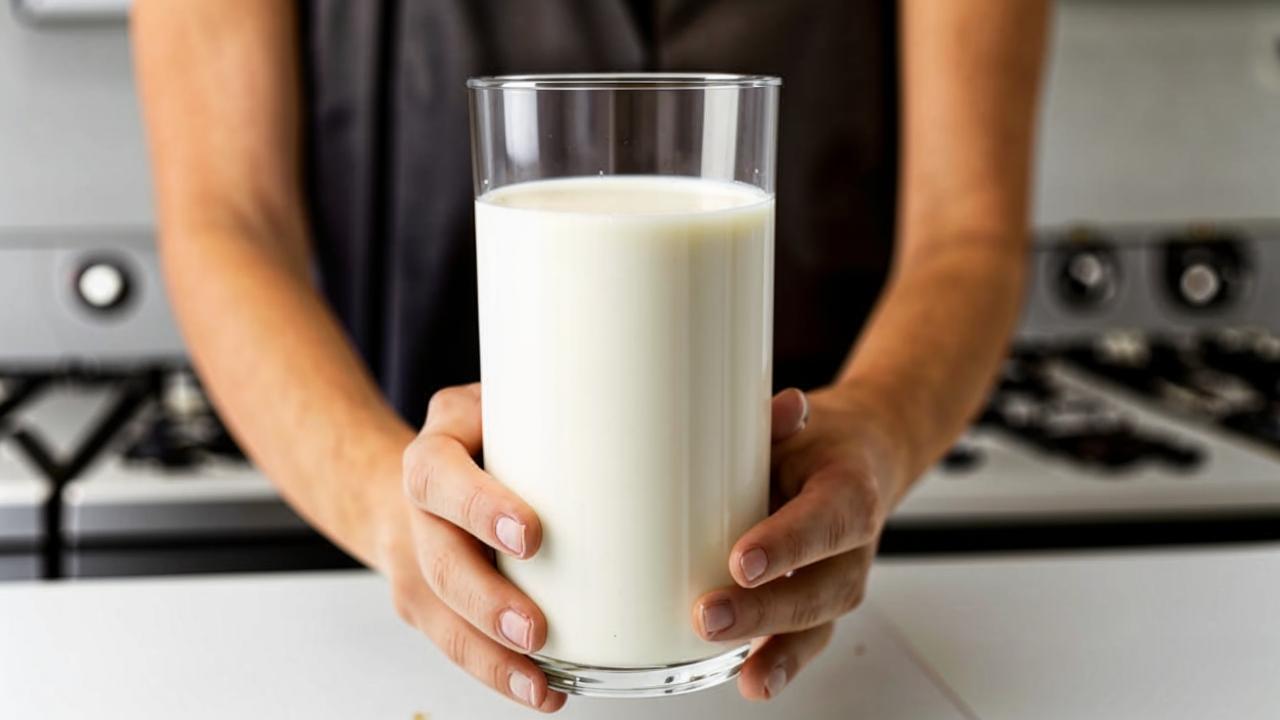Today you can find not only cow’s milk but also vegetable milk on the shelves in stores. How they differ and which one is healthier, let’s talk to an expert.
The benefits and harms of cow’s milk
Animal milk is a good source of vitamins and minerals, especially protein (containing all essential amino acids) and calcium. This combination of nutrients contributes to healthy bones and teeth, normal muscle function, and is essential for blood clotting and nerve impulse conduction.

Cow’s milk contains 8 g of protein – more than a hard-boiled egg.
Cow’s milk also contains phosphorus, vitamins A, D, B12, riboflavin (B2), potassium, magnesium, and zinc.

Medscan Medical Center nutritionist
“The product is a source of excess calories and sugar (lactose). Therefore, people with obesity, diabetes, metabolic syndrome are recommended to refuse this product. Including in hidden sources: for example, pancakes, omelets, pastries.”
Some people do not produce enough lactase to digest this enzyme. When milk is consumed, the undigested substance is broken down by bacteria in the large intestine, causing unpleasant symptoms: gas, abdominal bloating, pain, and diarrhea. This condition is called “lactose intolerance” and requires medical attention. This is especially true for people living in countries where livestock farming was not originally developed.

In addition, there is an allergy to animal milk, namely the proteins casein, albumin and globulin. In this case, the nutritious product should be completely abandoned, even lactose-free.
There are studies that show that high consumption of dairy products can increase the risk of prostate cancer and breast cancer.
As for the consumption of cow’s milk during childhood, pediatricians recommend not introducing it into a child’s diet until the age of 12 months. This is due to the fact that the product contains a large amount of proteins and minerals. The kidneys of the baby with such a volume of substances can not cope.

Milk should not be added to coffee and tea either, as it greatly reduces all the benefits of these drinks. The milk protein casein reacts with polyphenols (substances that have antioxidant properties) and neutralizes them.
Rospotrebnadzor recommends that a healthy adult consume two glasses of milk or liquid fermented milk products a day.
The benefits and harms of plant milk
There are many different types of plant milk: coconut milk, almond milk, almond milk, soy milk, sesame milk, oat milk, cedar milk, buckwheat milk, rice milk. However, in Russia, the most accessible and popular are coconut, almond and oat milk.
The benefits depend on the raw material underlying the product, but any plant milk does not contain lactose and animal milk proteins (casein, albumin, globulin) and is therefore suitable for people with intolerance to these substances.

Vegetable milk proteins do not react with polyphenols, but also contain their own antioxidants. That is, such a product can be added to coffee and tea.
Coconut milk. It is rich in magnesium, iron, selenium, vitamin C and potassium, proteins, useful saturated vegetable fats and lauric, oleic, myristic and palmitic acids contained in them. It has a delicate dessert creamy flavor and has a thick and rich creamy texture.
It is best not consumed when following a low-carbohydrate diet as it is high in calories. It is not suitable for people with coconut allergies.
Almond milk. Similar in its BJU (proteins/fats/carbohydrates) and micronutrients to cow’s milk: the product contains a lot of calcium, proteins and fats, and is rich in vitamins E and D, potassium, magnesium and phosphorus. It is not as fatty and sweet as coconut, and has a pronounced nutty flavor. It is not suitable for people with almond nut allergies.

Oat milk. Almost does not contain proteins, but has carbohydrates and fiber. It has a slight sweetness and a specific cereal flavor. Fats in the product, as a rule, are added artificially, as well as vitamin and mineral complexes.
It is not suitable for people with gluten allergies.
Soy milk. Contains soy protein, which is a building material for cells, but it lacks all essential amino acids. Such plant-based milk is low in calcium and saturated fat.
It is important to know that soy contains more than 20 allergenic proteins that cause skin, respiratory or digestive reactions.
What should plant-based milk not contain?
When choosing plant-based milk, you need to carefully examine its composition. Many types contain added sugars, flavorings and thickeners. Look for brands with only a few ingredients, including the main ingredient (e.g., almonds, coconut, oats) and water.

Avoid sweetened or artificially flavored options. When it comes to thickeners, it’s best to choose options that aren’t unhealthy. For example, lecithin, guar gum, and xanthan gum are generally considered safe, while carrageenan promotes abdominal bloating and stomach inflammation.
Also, plant-based milk should be free of other oils, fats, and trans fats, in addition to shock absorbers, sugars, and thickeners.
Will plant milk help you lose weight?
The caloric content of plant and animal milk is almost the same:
- cow’s milk – 65 kcal per 100 ml (lactose-free milk – 52 kcal);
- coconut milk – 138 kcal per 100 ml;
- almond milk – 51 kcal per 100 ml;
- oatmeal – 42 kcal per 100 ml;
- soy – 54 kcal per 100 ml.

In addition, in 90% of cases, manufacturers add sugar to milk to add flavor. Therefore, if it is necessary to limit the caloric content of the diet in order to reduce weight, it is better to choose herbal teas than drinks containing cow’s or vegetable milk.
Expert opinion: which milk is healthier and why?
According to a nutritionist, in the absence of contraindications, it is better to choose a product of animal origin.
Cow’s milk is a good product for a healthy person who does not suffer from lactose intolerance, allergy to milk proteins. In other cases, however, it is better to replace it with a vegetable analog, while observing the norms KBJU (calories/protein/fats/carbohydrates) of the diet.
What the research says
A 2023 paper found that cow’s milk is more nutritious than most plant-based alternatives.

Researchers analyzed the nutritional labels of 237 plant-based dairy products from 23 different manufacturers. It turned out that only 28 drinks were comparable or superior to cow’s milk in vitamin D, calcium and protein content.
Meanwhile, the plant-based product has fiber. Also in favor of this option is the fact that it does not contain cholesterol and has a very low level of saturated fat.
Therefore, it is impossible to unequivocally answer the question of which milk is healthier: vegetable or cow’s milk. Each product has its own advantages and disadvantages.





